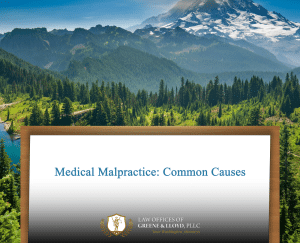In Washington State, personal injury cases operate under a rule known as “comparative negligence.” This legal standard can significantly impact the outcome of your case, especially if you share some responsibility for the incident. Understanding Washington’s comparative negligence laws can empower you to make informed decisions and maximize your compensation.
What Is Comparative Negligence?
Comparative negligence means that the court may reduce your compensation if you share part of the blame for an accident. Washington uses a “pure comparative negligence” approach, meaning even if you’re 99% at fault, you can still recover damages—though reduced by your degree of fault.
How Comparative Negligence Affects Personal Injury Claims
In personal injury cases, the court determines each party’s fault percentage. Your compensation is then adjusted based on your level of responsibility. For instance, if you are awarded $100,000 in damages but found to be 30% at fault, your final compensation would be $70,000.
Why It Matters to Understand Comparative Negligence
Knowing how fault impacts your case helps in setting realistic expectations. The insurance companies may attempt to place a higher fault percentage on you to minimize their payout. Understanding the law equips you to counter such tactics with strong evidence and arguments.
How a Personal Injury Lawyer Can Help
Navigating comparative negligence is complex, and insurance companies often exploit this complexity to reduce payouts. An experienced attorney can help you establish a clear narrative that accurately represents your level of responsibility, protecting your rights and compensation.
Conclusion:
Washington’s comparative negligence laws are intricate, and understanding them can make a significant difference in your case outcome. At Greene & Lloyd, our attorneys are well-versed in these laws and can help you navigate your case strategically. Contact us for a consultation to discuss your options. Learn how DUI charges can impact personal injury claims and explore related topics in our detailed DUI resource archive here.




